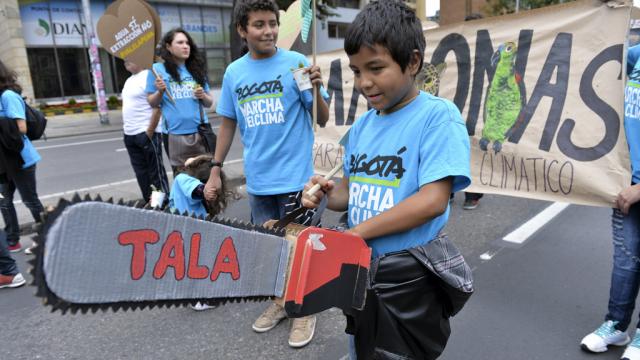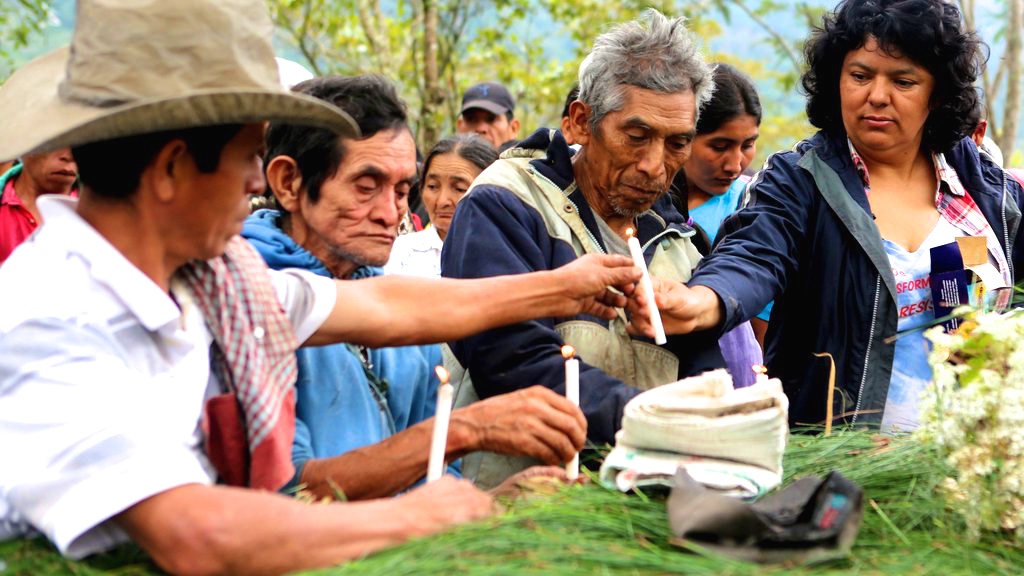
According to the report "How Many More? released a week ago by the activist organization Global Witness, killings of environmental activists rose 20% in 2014 over the previous year. In all, 116 people died last year due to environmental activism and land disputes across 17 countries.
Every case was related in some way to land ownership – which is why the authors chose to use the terms land defender and environmental activist interchangeably throughout.
To put last year's figures in perspective, the number of land defenders killed was double the number of journalists, including war correspondents, who died in their jobs during the same period. “How Many More?” follows up on an earlier report, “Deadly Environment,” which revealed the increasing number of murders of environmental activists in the decade from 2002 to 2013.
Although the current report focuses mainly on the murders, it also takes into account a wide range of abuses and other risks that land defenders face. Besides receiving death threats, many defenders have been tortured and beaten by security forces and paramilitary groups.
As the authors report, in one incident in Mozambique at the beginning of 2012, 14 people from the community of Cateme were arrested during a peaceful protest; nine were tortured and five beaten. The reason? They “were demanding a response to their concerns about land, shelter and water following their resettlement in 2010 to make way for a coal mine operated by the Brazilian company Vale."
As people worldwide await the UN conference on climate change, taking place in Paris in December, lost in the larger climate narrative are the individual stories of people battling environmental injustice on the local level – and paying the biggest price for it.
As the authors of the report admit, their numbers can’t possibly present the whole picture. “The stigmatization of these defenders as ‘anti-development’ means they have a harder time attracting funding, media coverage and political support, making it easier for the abuses they suffer to be ignored,” they said.
Honduras: The World’s Most Dangerous Place for Land Defenders
As environmental activism becomes increasingly criminalized in the U.S. and Canada, where federal police agencies raise steady warnings about “eco-terrorism," elsewhere in the Americas the situation is even more dire.
According to the Global Witness report, Latin America is now the most dangerous place in the world for environmental activists, whose struggles often lie at the intersection of human rights, environmental preservation and indigenous control of land. Of the 116 activists killed in 2014 worldwide, 40% were indigenous land defenders.
Although most of this isn’t news in Latin America – where the interests of sugar, coffee and fruit companies have more often than not trumped the concerns of peasant farmers struggling in the fields – there are contemporary twists. Large scale agriculture and logging, both legal and illegal, are still powerful forces. But it's the extractive industries and hydropower which are now playing an increasing role in removing people from their land and polluting the water sources that remote communities depend on.
Brazil and Colombia lead in the total numbers of land defender killings, suffering 29 and 25, respectively. Meanwhile, tiny Honduras saw 12 killings in a population of just over 8 million (and 111 environmentalists killed overall since 2002), making it the most dangerous place per capita. In the years since the 2009 coup that deposed President Manuel Zelaya, who had undertaken some modest land reforms, the country has become a playground for corporations and criminal gangs who have made it one of the murder capitals of the world.
One of the first things the coup plotters did, after taking power, was to approve 47 dam projects throughout the country, in part to power future mining operations. The locations were mostly kept secret and the people who would be affected by the projects weren't consulted. Because so many indigenous land claims are based on tradition, the people usually don’t have the paperwork required by state bureaucracy to prove their ownership.
The rightwing government also plans to start granting companies temporary environmental permits on the same day they apply for them, a practice that “ignores best international practice which states 6 months is necessary to process a permit and only serves to fuel further conflict over environmental and land rights,” the Global Witness report states.
Along with foreign corporations, powerful local interests expect to profit from the hydropower windfall. According to the report's authors, “Los Encinos S.A dam company is owned by Mr. Arnold Castro, husband of Gladys Aurora Lopez, current Vice President of the Honduran Congress for the ruling Nationalist party.” It's only the latest, obvious conflict of interest showing the impunity of elites in a country where two thirds of the population live in poverty.
Glimmers of Hope
Despite the horrors revealed by Global Witness, the report also contains stories of brave communities and individuals who have shown that it's possible to win key battles. Among the most notable of these is Berta Caceres, winner of the 2015 Goldman Prize for environmental activism, who has fought against the Agua Zarca dam project planned by the Chinese company Sinohydro in association with a local builder.
Caceres, who is an indigenous Lenca, is the general coordinator of the Civic Council of Popular Indigenous Organizations of Honduras, and has dealt with repeated threats and adversity in the 20 years she's been advocating for the rights of indigenous people in the country.
In her most recent battle to secure for the Lenca people the right of consultation on the Agua Zarca dam, her mother and children received threats of rape, kidnapping and death as well. Caceres had ample reason to fear the threats would be followed through on, as another community leader and a fellow member of the Council were both murdered in 2013. Caceres has been criminally charged twice, although in both cases the charges were later dropped
Despite the threats and fear, Caceres and her allies were successful in bringing their struggle to the world’s attention and keeping the equipment necessary to build the dam off the site. In late 2013, Sinohydro pulled out of the project. Shortly after, one of the project’s main funders, the International Finance Corporation, a private-sector offshoot of the World Bank, pulled its funding due to human rights concerns. The project has not moved forward since, an inspiration to land defenders throughout the Americas.
Read the Global Witness report in its entirety.
3 WAYS TO SHOW YOUR SUPPORT
- Log in to post comments












